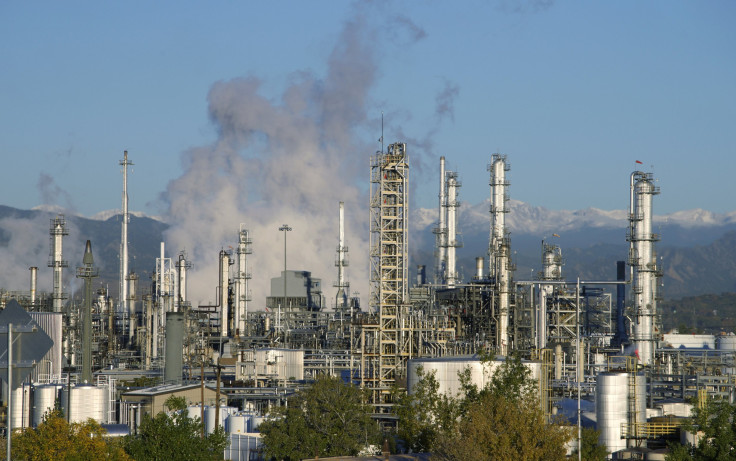Larry Summers Says Lifting Export Ban On US Crude Oil Would Lower America's Gasoline Bills

U.S. gasoline prices could drop even further than in recent weeks if the federal government scraps a 40-year ban on American crude oil exports, former U.S. Treasury Secretary Larry Summers says. By allowing American crude to compete on the global market, the world’s total supply would rise and the overall prices would fall.
“If we allow oil exports, the price received by U.S. producers will rise, which will lead to more production -- meaning more employment and investment. Permitting the export of oil will actually reduce the price of gasoline," Summers told Bloomberg Businessweek in a Friday story.
In recent years, the surge in U.S. crude oil production has increased pressure on federal trade officials to lift the ban, which former U.S. President Gerald Ford enacted in 1974 following the Arab oil embargo crisis. The idea was to ensure American independence from foreign energy supplies, making it less vulnerable to political and economic crises abroad.
At the time, the United States wasn’t a major player among oil-producing countries. But thanks to advancements in drilling technologies and recent shale discoveries, the nation is now on track to be the world’s biggest oil producer this year -- ousting Saudi Arabia from the top slot. As U.S. refineries struggle to keep up with the supply boom, producers are increasingly pushing to sell their crude abroad.
“As an oil exporter, we’ll have the kind of leverage other oil exporters wield,”said Summers, who was Treasury secretary for former U.S. President Bill Clinton. “By producing more oil and exporting it, we put downward pressure on prices, which is the most important sanction we can engage in with response to Russia and the Middle East.”
Sen. Ed Markey (D-Mass.), whose comments also appeared in the story, rejected the notion that lifting the export ban would improve America’s economy and foreign policy. He noted that the United State still imports a third of the oil it consumes, making the country vulnerable to the whims of the global market.
“We would be short sighted to treat oil like any other commodity,” he said in a Sept. 9 Brookings Institution speech cited by Businessweek. “Allowing exports will raise the price of domestic oil, but there’s no guarantee it will lower the international price of oil. It could simply raise U.S. prices to the level of the international market, which will lead to higher gasoline prices in the U.S.”
Markey added that American refiners are spending billions of dollars to add new capacity and upgrade their facilities, spurring a jobs boom for U.S. steelworkers. “If we export our oil, we export thousands of U.S. refining jobs rather than letting the market work to increase U.S. refining capacity,” he said.
U.S. Energy Secretary Ernest Moniz said earlier this year that the oil industry hasn’t made a convincing argument of why the government should lift the ban. But the U.S. Commerce Department has begun easing the ban in some respects. In June, it allowed two Texas oil companies to export condensate, a type of ultra-light oil. For many oil producers and analysts, the exception is a positive signal of more changes to come.
“From the policy perspective, depending on production and forecasts, broader regulations on condensate exports and a possible relaxing of the ban on crude exports could be seen within the next 18 months,” according to a Nov. 6 analysis on Breaking Energy, a news site.
© Copyright IBTimes 2024. All rights reserved.











